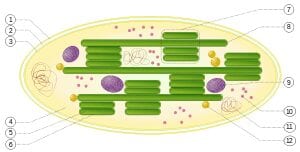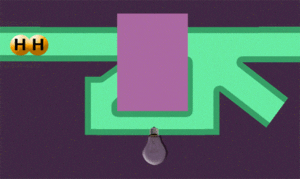
A new international study has confirmed that self-testing for HIV is effective and could be the answer to controlling the global epidemic.
A new international study has confirmed that self-testing for HIV is effective and could be the answer to controlling the global epidemic. This major systematic review, led by the Research Institute of the McGill University Health Centre (RI-MUHC), shows HIV self-testing removes much of the fear and stigma associated with being tested for the disease. This study, which is published in PLoS Medicine is the first of its kind and could pave the way for early detection and treatment around the world, thereby reducing transmission.
“Thirty years into the HIV* epidemic, there is no vaccine in sight. Treatment as a prevention strategy has been known to work, but uptake of HIV screening seems to be limited by a societal problem: HIV stigma and perceived discrimination,” says Dr. Nitika Pant Pai, who is the first and corresponding author of the study, a clinical researcher at the RI-MUHC and assistant professor in the Department of Medicine at McGill University.
According to UNAIDS*, 50 per cent of people living with HIV worldwide are unaware of their HIV status and about 2.5 million people become infected every year. Dr. Pant Pai firmly believes that access to an HIV self-test linked to expedited counselling systems will help expand access to screening and reduce judgement and perceived attitudes around HIV testing. Self-tests are performed in oral fluid samples from the gum lining of the mouth in the privacy of one’s home. They are non-invasive, convenient, ensure confidentiality and can provide results within 20 minutes. The results are self-interpreted however, and require confirmation at a medical clinic if positive.
There is a lot of global momentum in favour of HIV self-testing with several countries and health networks advocating their use. Several studies have been conducted to determine the best methods of making a self-test with linked counselling and referral services available in various African, North American and European settings. Dr. Pant Pai and her colleagues decided to look at the global evidence on self-testing strategies based on acceptability, feasibility and accuracy and success with linkages to care.
They examined 21 worldwide studies and found that two distinct self-testing strategies have been tried: supervised self-testing (self-testing and counselling aided by a health-care professional), and unsupervised self-testing (self-testing performed without any help but with counselling available by phone or internet). Most of the data came from studies carried out in high-income settings including the United States, Canada, Spain and the Netherlands, as well as Kenya, Singapore, Malawi and India.
Across the various studies, researchers observed that acceptability (defined as the number of people who self-tested divided by the number who consented to self-test) was very high for both self-testing strategies. They also found evidence that people preferred self-testing to facility-based testing and oral self-testing to blood-based self-testing. “The preference was largely driven by the fact the oral self-tests are non-invasive, convenient, easy to swab and do not involve a finger stick or blood from your arm for a preliminary screen,” explains Dr. Pant Pai. “A lot of people also wanted to take the oral self-test home to test their partners.”
The Latest Bing News on:
HIV Self-testing
- Woman Forced to Quit Job After Bosses Found Out She Was HIV Positive: “Why Would You Belittle Me?”on April 26, 2024 at 6:52 am
HIV-positive woman and activist Rachel Stevens shared that she was forced to quit her job and states why her former employers wanted to dismiss her.
- How communities led in the HIV response, saving lives in Eswatini at the peak of a crippling AIDS epidemicon April 25, 2024 at 5:51 am
Eswatini is one of the countries which has been most affected by HIV. At the peak of the epidemic in 2015, almost one out of three people were living with HIV. In 1995, when there was no ...
- HIV self-test kit: Experts slam government decision to end funding for program — 'This shouldn't be happening'on April 22, 2024 at 9:34 am
Advocates and health-care experts are concerned about the federal government's decision not to renew funding for HIV self-testing kits, a program that cost just over $17 million over two years, ...
- HIV self-test kit: Experts slam government decision to end funding for program — This shouldn't be happening'on April 22, 2024 at 9:34 am
Advocates and health-care experts are concerned about the federal government's decision not to renew funding for highly effective HIV self-testing kits, stressing it will have a severe impact on ...
- 32 years ago, Philly began using syringe exchanges to fight AIDS. With funding now in doubt, experts fear an HIV surgeon April 19, 2024 at 10:30 am
Prevention Point and other organizations have helped prevent infections by offering drug users clean needles for free, studies show. Mayor Cherelle Parker plans to pull the city funding.
- HIV care needs to focus on the individual, not the diseaseon April 19, 2024 at 4:05 am
For those facing these substantial barriers, HIV must be embedded within a system of wraparound support that holistically addresses medical care, food insecurity, housing, and trauma. Without ...
- Maine leads in late-stage HIV diagnoses, efforts underway to increase testingon April 18, 2024 at 12:58 pm
PORTLAND (WGME) -- Maine is seeing a troubling trend-- leading the U.S. in late-stage HIV diagnosis. Now, one organization is trying to get the message out and turn that around. “I was always aware of ...
- HIV Engages in Mimicry to Enter the Nucleuson April 16, 2024 at 7:50 am
To enter the nucleus, the HIV-1 virus acts like a transport receptor, which presents new targets for antiviral therapies.
- ASX Health Stocks: Actinogen begins Alzheimer’s Phase 2b trial; Atomo sells more HIV self-testson April 15, 2024 at 8:21 am
Atomo Diagnostics (ASX:AT1) rose 10 per cent on Monday morning after announcing purchase orders from Viatris Healthcare for about $570,000 worth of HIV self-tests. These products are manufactured ...
- ASX Health Stocks: Atomo sells more HIV Self-Tests; Actinogen begins Phase 2b trial on Alzheimer’son April 14, 2024 at 6:52 pm
Atomo announces more purchase orders for HIV Self-Tests Actinogen says first patient was treated in Alzheimer’s disease study Imugene has opened enrolment for expansion study in solid tumours Atomo ...
The Latest Google Headlines on:
HIV Self-testing
[google_news title=”” keyword=”HIV Self-testing” num_posts=”10″ blurb_length=”0″ show_thumb=”left”] [/vc_column_text]The Latest Bing News on:
HIV
- Despite overall drop in sexually transmitted infections in Minnesota, officials say rising HIV cases are ‘troubling’on April 27, 2024 at 2:49 pm
Although the number of reported sexually transmitted infections dropped 3 percent from 2022 to 2023, health officials say Minnesota’s infection rates are still high and that new HIV and congenital ...
- 3 women got HIV after ‘vampire facials’: CDC explains how it happenedon April 27, 2024 at 11:15 am
ALBUQUERQUE, N.M. (KRQE) – The Centers for Disease Control and Prevention (CDC) released new information about an Albuquerque spa that was shut down by health regulators after clients were infected ...
- 'Vampire facials' at unlicensed spa likely resulted in HIV infections: CDCon April 27, 2024 at 5:34 am
Three women likely contracted HIV after receiving so-called "vampire facials" making them the first known cases of the virus being transmitted during a a cosmetic injection procedure.
- Women Diagnosed With HIV After “Vampire Facial” Procedures Popularized by Kim Kardashianon April 27, 2024 at 5:29 am
At least three women were diagnosed with HIV after receiving a bloody "vampire facial" at a New Mexico wellness spa, an alarming Center for Disease Control (CDC) report reveals. According to the ...
- Three women likely contracted HIV from 'vampire facials' at closed New Mexico Spa: CDCon April 27, 2024 at 5:00 am
HIV cases have been attributed to "vampire facials" three women received at an Albuquerque, New Mexico spa, the CDC says.
- CDC describes first known cases of HIV transmitted via 'vampire facial' injectionson April 26, 2024 at 6:08 pm
Three women likely got HIV while receiving “vampire facials” at a New Mexico spa — the first known cases transmitted via cosmetic injections, a CDC report says.
- Cluster of HIV cases linked to microneedling treatments at New Mexico spaon April 26, 2024 at 11:43 am
A cluster of clients who had gotten "vampire facial" microneedling skin treatments at a New Mexico spa were diagnosed with HIV, probably via poorly cleaned instruments, a new report finds.
- "Vampire facials" at an unlicensed spa infected three people with HIV, CDC findson April 26, 2024 at 10:50 am
First known HIV cases from a nonsterile injection for cosmetic reasons highlights the risk of unlicensed providers.
- First cases of HIV transmission through cosmetic injection confirmed in CDC report on women who got ‘vampire facials’on April 26, 2024 at 7:20 am
The procedure, which rejuvinates skin and improves the appearance of wrinkles, gained popularity after Kim Kardashian got a vampire facial during an episode of Kim and Kourtney Take Miami ...
- HIV Transmission Linked To Vampire Facials, CDC Sayson April 26, 2024 at 6:23 am
Cases of HIV have been traced to an unlicensed spa in New Mexico. Infections may be linked to platelet-rich plasma microneedling facials, also known as vampire facials.
The Latest Google Headlines on:
HIV
[google_news title=”” keyword=”HIV ” num_posts=”10″ blurb_length=”0″ show_thumb=”left”]










